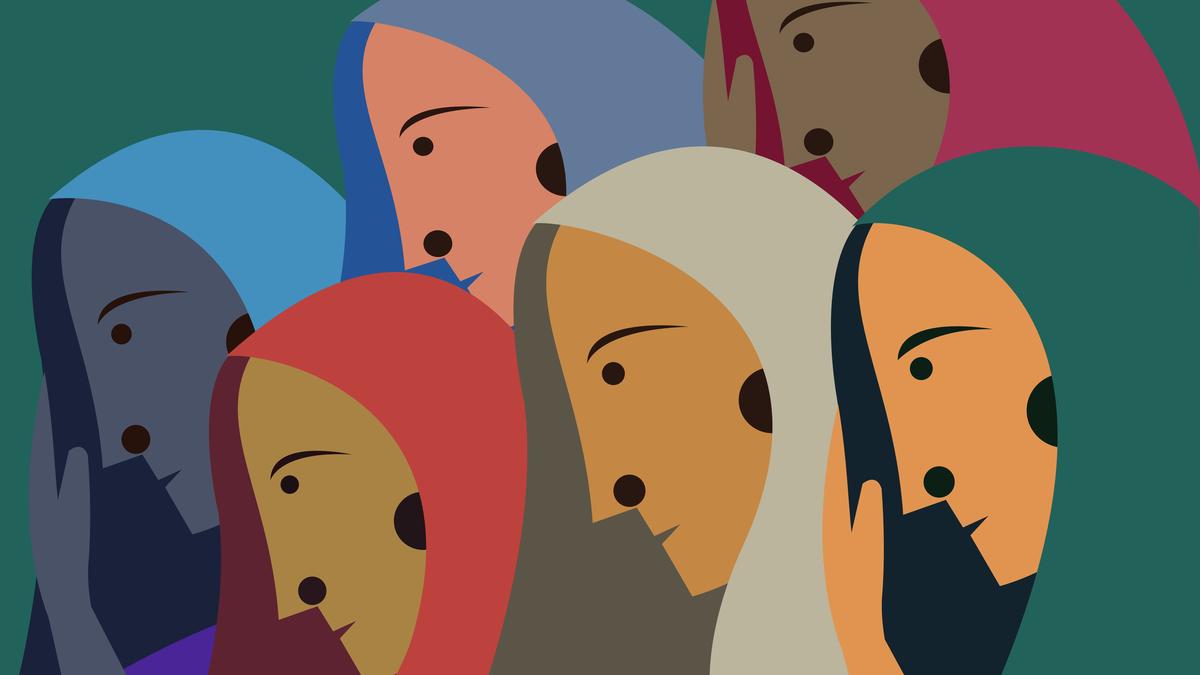
A group of Indian women wearing traditional dress
| Photo Credit: Getty Images/iStockphoto
Even after over 75 years of Independence, the social fabric of India continues to be set against women. India might have surpassed countries like the U.K. to become the fifth largest economy in the world but this economic growth has not been accompanied by an equivalent upward shift in the social status of women. They continue to be assigned a second-class status with little value for their labour, whether paid or unpaid.
The Time Use Survey (TUS), 2024 recently released by the Ministry of Statistics and Programme Implementation captures this sentiment well. According to the survey, women in India spent 289 minutes per day in 2024 on unpaid domestic work as against 88 minutes spent by men on the same. Men and women also spent 75 minutes and 137 minutes respectively on unpaid caregiving services.
When compared with the 2019 report of the same survey, there has been a 10-minute drop in the time devoted by women to domestic chores while that spent on employment-related activities has increased by a dismal eight nminutes. While many are celebrating this as an increase in female participation in the workforce, economists decry such haste in reaching conclusions. Many of them believe that this shift might signify a growing tendency among women to take up jobs while spending more or less the same time on household work. This indirectly implies subjecting themselves to a ‘double burden’ out of desperation to supplement family incomes amidst growing economic distress.
Women spending a staggering 83.9% of their time on unpaid work in sharp contrast to 45.8% for men suggests a continuation of age old patriarchal norms that relegate women to the domestic sphere while allocating the breadwinner status to men. This categorization comes clubbed with an unequal distribution of power. The one who earns always has an upper hand even in household matters, while no amount of hard work that women put in is ever duly rewarded.
The societal structure is such that women suffer from ‘time poverty’ wherein they do not have sufficient time for rest or leisure. While home-makers have no days off, working women ‘come back to work from work’ as they are expected to fulfill their familial responsibilities post office hours. It seems that the fixed working hours rhetoric exists only for men.
Expectations galore
Women often feel something known as ‘mother’s guilt’ if they fail to meet societal standards of parenting but there is nothing like ‘father’s guilt’ for men who fail to give enough time to their families. All expectations and complaints are directed at women because that is what we have observed and internalised since childhood.
Most men grow up to find nothing wrong with women labouring relentlessly as they believe it to be a woman’s duty. They think it is women’s ‘responsibility’ to impeccably juggle multiple roles without complaining.
At the root of the problem is the gendered nature of our society that fails to respect women’s work or appreciate its strenuousness. In a male-dominated system, sacrifice is seen as the cornerstone of a woman’s existence. She is supposed to prioritise her household and family over her own career, dreams and, at times, even her own self.
This dominance overflows into the sphere of employment creating a glass ceiling that prevents women from scaling up to leadership roles. According to a report by Deloitte, women in India held only 18.3% of boardroom seats in 2023. The Indian Parliament is no different with just 74 women MPs (14%) in the current Lok Sabha, out of a total of 545.
While the rest of the world is no paradise for women, India lags behind in many respects. Globally, women spend 2.8 hours more than men on unpaid domestic and caregiving work. However, as shown by the TUS survey, in India this difference is close to four hours.
This is despite the uptick observed in public mindset towards women lately. There are films, advertisements and shows promoting a more equitable world and the TUS survey indicates men have begun to shoulder some household responsibilities in recent years.
Regardless, the Indian state still has to tread a long and trying path to a truly gender equal society.
Published – April 20, 2025 03:25 am IST
